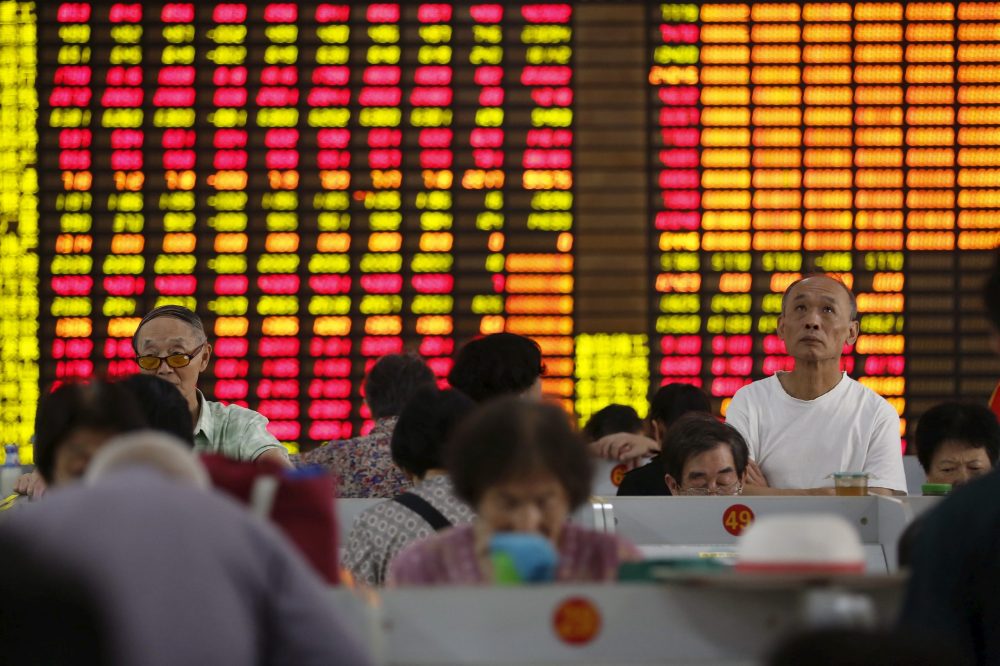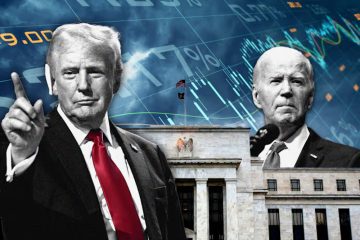The Chinese strategy that defied quants

For a long time, the largest quant funds in China outperformed the market by selecting stocks using complex statistical models. However, the government was not included in their models.
In the United States, quantitative funds like AQR Capital Management, Renaissance Technologies, and Millennium Management oversee massive portfolios and offer small investors a significant source of liquidity. These funds use algorithms to sift through mountains of data and make trading decisions.
However, there have been problematic moments within the business, with some claiming that herd mentality worsens volatility.
Similar accusations are being leveled against China’s $200 billion quant fund business, which could have far-reaching consequences for the sector.
When last month’s wagers on the shares of small companies went wrong, these funds lost billions of dollars. They are now the target of Chinese officials who are hell-bent on stopping the stock market’s decline at any cost.
In late February, the country’s securities regulator and two largest stock exchanges began a broad crackdown on quants, imposing stricter regulations on the industry and temporarily prohibiting two funds from trading. However, experts and investors believe that the government is to blame for the quant market’s anarchy.
Attempts by China to exert control over the stock market have historically met with mixed results. Moral hazard and insider trading accusations surfaced in 2015 when a purported national team of state-linked enterprises was instructed to purchase equities.
While the goal of implementing a circuit-breaker mechanism in January 2016 was to reduce volatility, investors’ hasty selling following its implementation only made matters worse. Even though many firms’ biggest shareholders banned selling in August of last year, the benchmark CSI 300 index nonetheless fell for five consecutive months.
Last month’s chaos in China’s quant fund sector is the most recent illustration of how Beijing’s market-fighting efforts can have disastrous consequences.
Around 2010, a group of Chinese traders who had worked for major American hedge funds came back to China, sparking the beginning of China’s quant industry. It was only natural for these traders to establish a fund in mainland China after the global financial crisis, when the Chinese economy was flourishing and the Western world was in shambles.
The New York-based Millennium Fund was an excellent environment for talent development. There, Wang Chen and Yao Qicong worked for a while before Wang and Yao relocated to China in 2012 to help found Ubiquant Investment.
In 2014, Ma Zhiyu departed to establish Ningbo Lingjun Investment Management Cooperation. Ubiquant manages about $7 billion, and the two funds are currently among the largest quants in China.
Many of the AI systems used by Chinese quant funds have been able to pin down a straightforward strategy since the beginning of 2023: purchasing microcap and small-cap stocks while shorting futures tied to midcap and large-cap indexes.
According to financial data provider Wind, a popular microcap stock index had a 50% increase in 2023, while futures linked to the blue-chip CSI 300 index had a 12% decline.
However, quants in China faced some unique challenges compared to their American colleagues.
The country’s sudden rise to economic superpower status meant that these funds lacked decades of data, which is a huge problem for companies that employ data mining to find deals. The major intangible in China, the capriciousness of the regime, was an even greater issue.
Quant funds utilize algorithms that sift through mountains of historical data in search of recurrent patterns. The frequency of China’s stock-market interventions has increased over the past few months, but they are still far from routine.
Phillip Wool, head of research at money management Rayliant Global Advisors, noted that quants often struggle to deal with unexpected shifts. These models just aren’t flexible enough to account for policy interventions that alter the playing field.
That became clear earlier this year when Beijing’s tolerance for a protracted decline in stock prices was ultimately eroded.
Premier Li Qiang of China became an outspoken advocate for action to revive the country’s sagging stock markets in January. To make selling more difficult for shareholders, China’s securities regulator tightened the restrictions. The person in charge of the regulator, Yi Huiman, was sacked.
Once again, Beijing leaned on the national team, which focused on purchasing stock market exchange-traded funds.
According to statistics from research firm Z-Ben Advisors, five big Chinese exchange-traded funds that follow large-cap indexes saw an influx of $34.8 billion in the first two months of this year, surpassing their total inflows for the entire year 2023. Experts see that as evidence of national-team buying.
Funds that own shares of some of China’s largest corporations were the first emphasis of the national team. The buying frenzy excluded micro- and small-cap equities, which caused a selloff in these stocks and caused quants immediate agony.
The CSI 300 rose 5.8 percent in the first week of February, whereas a widely followed microcap index fell 17.5 percent.
Quant funds took a major hit when they sold their small-cap companies too quickly. Some of the quant strategies had borrowed money from brokers to boost their investment capacity, so their desire to sell was even more pressing.
According to Hao Hong, head economist at Grow Investment Group, everyone was attempting to sell simultaneously. A stampede ensued since the escape door was inadequate, and the market simply crashed.
According to Rayliant, certain quant funds that were affected by the crash witnessed a precipitous 30 percentage point drop in their year-to-date results. A few lesser-known funds have gone dark.
The Shanghai-based quant fund Mingxi Capital informed its investors in a statement dated February 8 that the market data and patterns it had previously utilized for trading were no longer reliable. This caused its algorithm, like the algorithms of many quant funds, to go from being spot on to being completely incorrect time and time again.
According to Simuwang, the fund distributor, Minghong Investment’s flagship strategy, Minghong Stock Selection Fund I, has lost 8.8 percent of its value this year. Last year, it returned a healthy 10%. Another company, High-Flyer Quant, has had a 9.5% loss on average for all of its funds in 2024. Its return since inception in 2016 is 13% per annum.
Criticism of the tactics and leverage used by China’s quant funds arose in response to their swift turn of events. However, the industry has yet to face its greatest challenge.
For three days beginning on February 19th, Ningbo Lingjun’s accounts were frozen by the Shanghai and Shenzhen exchanges. Reason being: just when Beijing was expecting market participants to do their bit to help the stock market, the quant fund sold almost $360 million worth of shares in under a minute. They had started “public condemnation” of the fund, the exchanges claimed.
“The central government could not tolerate having the national team buying only to find that the quant funds were selling,” stated Colin Liang of Redwheel, a global asset manager and head of China research. The greater good of the market and the country was undermined by that. The line had been crossed.
The following day, the two stock markets announced they would be cracking down on quants’ trading, especially leveraged traders. Additionally, they imposed stricter reporting requirements on international funds that use quantitative techniques and have a trading relationship with the stock exchange in Hong Kong.
Subsequently, China’s securities regulator issued a warning to quants, promising to punish lawbreakers and stepping up oversight of over-the-counter derivatives and direct market access. Additionally, it has committed to enhancing regulation of high-speed trading.
The newly-formed quant fund sector in China is now under much more pressure as a result of these actions. After years of underwhelming results, they have also questioned how these funds will do in an increasingly government-interventionized stock market.
More regulations, more prohibitions? Sure, Liang responded, provided the quants’ actions do not harm the country.

